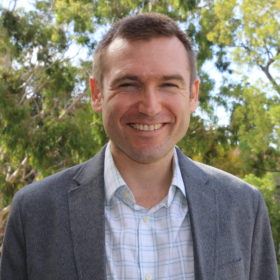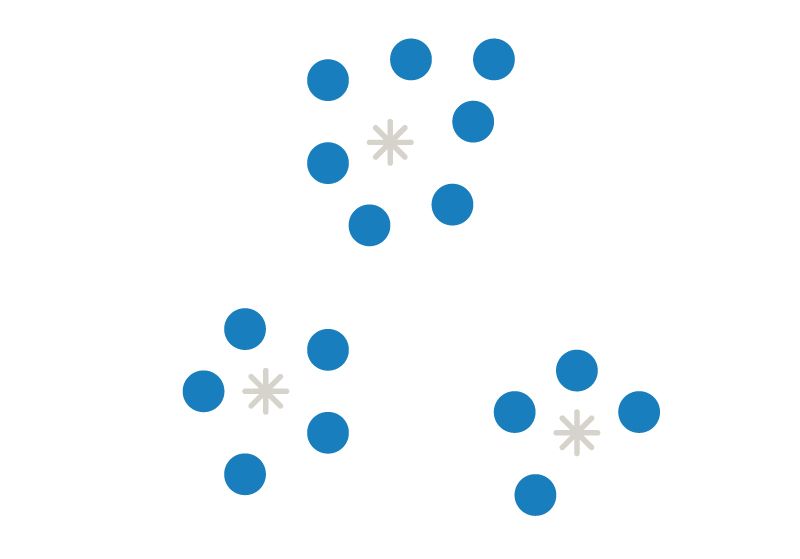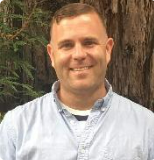About
The Cornell Phonetics Lab is a group of students and faculty who are curious about speech. We study patterns in speech — in both movement and sound. We do a variety research — experiments, fieldwork, and corpus studies. We test theories and build models of the mechanisms that create patterns. Learn more about our Research. See below for information on our events and our facilities.

Upcoming Events

27th October 2022 04:30 PM
Linguistics Colloquium Speaker: David Goldstein
The Department of Linguistics proudly presents Dr. David Goldstein, Professor at the Department of Linguistics, UCLA. Dr. Goldstein will speak on "Divergence-time estimation in Indo-European: The case of Latin".
Abstract:
Divergence-time estimation is one of the most important endeavors in historical linguistics. Its importance is matched only by its difficulty. As Bayesian methods have become more common over the past two decades, two critical issues have come to the fore.
The first is that studies of divergence-time estimation have focused preponderately on root ages. Estimates of root ages rely crucially on the timing of clade-level events, but these events, despite being more recent, are often uncertain or even disputed. To put divergence-time estimates on more secure ground, more work at the clade level is essential.
The second problem is model sensitivity (e.g., Bromham 2019, Heggarty 2021). Researchers can now select from an array of tree, clock, and character-change models, the choice of which can have a dramatic impact on the estimated divergence times. The question then arises of how to choose among the bounty of modeling options.
My talk addresses these two issues in an investigation of a particularly fraught case within Indo-European, the diversification of Latin into the Romance languages. The results of this study support a gradualist account of the formation of the Romance languages that most likely began between 250 and 500 CE. It also offers strong support (with a posterior probability over 80%) for the view that Classical Latin is a sampled ancestor of the Romance languages.
At a more general level, I demonstrate that problems of model specification can be mitigated at least to an extent with increased model exploration and tests of model sensitivity and adequacy.
About Dr. Goldstein:
David holds a joint position in the Department of Linguistics and Program in Indo-European Studies at UCLA as well as a courtesy appointment in the Department of Classics.
His research is devoted to two broad areas.
- The first is the relationship between language change and linguistic theory, with a particular focus on syntactic and morphosyntactic change in Indo-European.
- The second is computational phylogenetics.
From December 2022 through July 2023, David will be a Visiting Fellow at Clare Hall, University of Cambridge. During Easter Term 2023, he will be a Lewis-Gibson Fellow at the Cambridge Centre for Greek Studies.
Location: Morrill Hall, Room 10628th October 2022 12:20 PM
Phonetics Lab Meeting
(optional for dissertators)
We will watch this video presentation by Shain & Elsner from a 2019 ACL Conference : https://aclanthology.org/N19-1007/, in preparation for our reading of their paper:
Location: B11, Morrill Hall
2nd November 2022 12:20 PM
PhonDAWG - Phonetics Lab Data Analysis Working Group
Sam will show the calculations behind the H, C, and V-measures for evaluating clustering, and we'll talk about what these measures mean.
Location: B11, Morrill Hall
3rd November 2022 04:30 PM
Linguistics Colloquium Speaker: Matt Wagers
The Department of Linguistics proudly presents Dr. Matthew Wagers, Professor and Department Chair at the Department of Linguistics, UC Santa Cruz.
Dr. Wagers will speak on "Alignment, Reanalysis and Reencoding in a Verb-initial Language".
Talk Abstract:
When do two DPs interact in sentence processing, and how does their similarity relationship affect that interaction?
My principal case study will be the processing of relative clauses (RCs) in Santiago Laxopa Zapotec (SLZ), an Oto-Manguean language of Oaxaca. SLZ is a verb-initial language whose ambiguous RCs consist of N - V - N sequences. Resumptive pronouns (RPs) can be inserted to disambiguate, either in subject, or object position; but object RPs sometimes appear to be quite difficult to comprehend.
In a series of judgment and eye-tracking experiments, we find that SLZ -- like many languages -- shows a version of the Subject Advantage. However, it is weak and defeasible.
We further find that the similarity of the two DPs is a principal determinant of difficulty. We take this as evidence of encoding interference, a somewhat surprising finding given the positional distinctness of the two nouns. We link the existence of encoding interference, instead, to their interaction via reanalysis.
Finally, the results from SLZ will be compared to similar, recent findings in other languages with optional object RPs (Hebrew) and ambiguous N - V - N RCs (Chamorro).
Bio:
Dr. Wagers is a linguist at the University of California, Santa Cruz. His research interest is in language processing, especially the coordination of syntactic information in memory. He teaches courses at UCSC on psycholinguistics, experimental methods & design, language and memory, and syntax.
Dr. Wagers completed his Ph.D. in Linguistics at UMD (2008), supervised by Colin Phillips. Before that, he received his A.B. in Molecular Biology at Princeton University (2003), with Certificates in Neuroscience and in Linguistics.
Location: Morrill Hall, Room 106
Facilities
The Cornell Phonetics Laboratory (CPL) provides an integrated environment for the experimental study of speech and language, including its production, perception, and acquisition.
Located in Morrill Hall, the laboratory consists of six adjacent rooms and covers about 1,600 square feet. Its facilities include a variety of hardware and software for analyzing and editing speech, for running experiments, for synthesizing speech, and for developing and testing phonetic, phonological, and psycholinguistic models.
Web-Based Phonetics and Phonology Experiments with LabVanced
The Phonetics Lab licenses the LabVanced software for designing and conducting web-based experiments.
Labvanced has particular value for phonetics and phonology experiments because of its:
- *Flexible audio/video recording capabilities and online eye-tracking.
- *Presentation of any kind of stimuli, including audio and video
- *Highly accurate response time measurement
- *Researchers can interactively build experiments with LabVanced's graphical task builder, without having to write any code.
Students and Faculty are currently using LabVanced to design web experiments involving eye-tracking, audio recording, and perception studies.
Subjects are recruited via several online systems:
- * Prolific and Amazon Mechanical Turk - subjects for web-based experiments.
- * Sona Systems - Cornell subjects for for LabVanced experiments conducted in the Phonetics Lab's Sound Booth

Computing Resources
The Phonetics Lab maintains two Linux servers that are located in the Rhodes Hall server farm:
- Lingual - This Ubuntu Linux web server hosts the Phonetics Lab Drupal websites, along with a number of event and faculty/grad student HTML/CSS websites.
- Uvular - This Ubuntu Linux dual-processor, 24-core, two GPU server is the computational workhorse for the Phonetics lab, and is primarily used for deep-learning projects.
In addition to the Phonetics Lab servers, students can request access to additional computing resources of the Computational Linguistics lab:
- *Badjak - a Linux GPU-based compute server with eight NVIDIA GeForce RTX 2080Ti GPUs
- *Compute server #2 - a Linux GPU-based compute server with eight NVIDIA A5000 GPUs
- *Oelek - a Linux NFS storage server that supports Badjak.
These servers, in turn, are nodes in the G2 Computing Cluster, which currently consists of 195 servers (82 CPU-only servers and 113 GPU servers) consisting of ~7400 CPU cores and 698 GPUs.
The G2 Cluster uses the SLURM Workload Manager for submitting batch jobs that can run on any available server or GPU on any cluster node.
Articulate Instruments - Micro Speech Research Ultrasound System
We use this Articulate Instruments Micro Speech Research Ultrasound System to investigate how fine-grained variation in speech articulation connects to phonological structure.
The ultrasound system is portable and non-invasive, making it ideal for collecting articulatory data in the field.

BIOPAC MP-160 System
The Sound Booth Laboratory has a BIOPAC MP-160 system for physiological data collection. This system supports two BIOPAC Respiratory Effort Transducers and their associated interface modules.

Language Corpora
- The Cornell Linguistics Department has more than 915 language corpora from the Linguistic Data Consortium (LDC), consisting of high-quality text, audio, and video corpora in more than 60 languages. In addition, we receive three to four new language corpora per month under an LDC license maintained by the Cornell Library.
- This Linguistic Department web page lists all our holdings, as well as our licensed non-LDC corpora.
- These and other corpora are available to Cornell students, staff, faculty, post-docs, and visiting scholars for research in the broad area of "natural language processing", which of course includes all ongoing Phonetics Lab research activities.
- This Confluence wiki page - only available to Cornell faculty & students - outlines the corpora access procedures for faculty supervised research.

Speech Aerodynamics
Studies of the aerodynamics of speech production are conducted with our Glottal Enterprises oral and nasal airflow and pressure transducers.

Electroglottography
We use a Glottal Enterprises EG-2 electroglottograph for noninvasive measurement of vocal fold vibration.

Real-time vocal tract MRI
Our lab is part of the Cornell Speech Imaging Group (SIG), a cross-disciplinary team of researchers using real-time magnetic resonance imaging to study the dynamics of speech articulation.

Articulatory movement tracking
We use the Northern Digital Inc. Wave motion-capture system to study speech articulatory patterns and motor control.
Sound Booth
Our isolated sound recording booth serves a range of purposes--from basic recording to perceptual, psycholinguistic, and ultrasonic experimentation.
We also have the necessary software and audio interfaces to perform low latency real-time auditory feedback experiments via MATLAB and Audapter.

